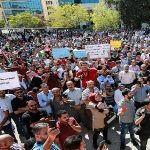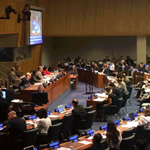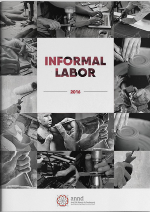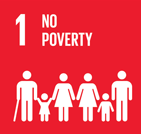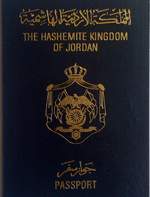Jordan
Contemporary Social Movements and Protests in Jordan Jordan: Protests get results
As a result of longstanding failures in dealing with internal and external challenges, and in particular conditionalities imposed by IMF loans, Jordan has faced a large series of social and political protests in recent years. In the wake of increasing deteriorations of the economic situation, the demonstrations have received an enormous upswing and received public support from all segments of society.
The alternative report on Jordan, prepared by the Phenix Center for Economic Studies, describes the dynamics and the leading role of Civil Society Organizations (CSOs) during the demonstrations, and takes a look at the aftermath of the protests and upcoming challenges.
The numerous protests in Jordan achieved sustainable social and economic improvements in terms of better wages, working conditions and the dismantling of unjust regulations.
The unexpected outbreak of the Corona Virus is another challenge for the Jordanian health care system, and the for the productivity of the state itself. Mismanagement could exacerbate the already tense socio-economic which particularly affect the vulnerable population (such as migrants, informal workers and uninsured) who do not have the capacity and financial resources to seek medical help or unemployment benefits.
Published on Mon, 2020-11-02 15:27
As a result of longstanding failures in dealing with internal and external challenges, and in particular conditionalities imposed by IMF loans, Jordan has faced a large series of social and political protests in recent years. In the wake of increasing deteriorations of the economic situation, the demonstrations have received an enormous upswing and received public support from all segments of society.
The alternative report on Jordan, prepared by the Phenix Center for Economic Studies, describes the dynamics and the leading role of Civil Society Organizations (CSOs) during the demonstrations, and takes a look at the aftermath of the protests and upcoming challenges.
|
Published on Thu, 2020-05-14 12:11
The COVID-19 health crisis added to the multidimensional crises in the Arab region and their manifestation in conflicts, wars, economic and social inequalities, and the increasing number of refugees and migrants. It could lead to severe repercussions at the economic, social, and political levels. According to an ESCWA preliminary estimate, the region will lose at least USD42 billion in 2020 due to the Corona pandemic. ESCWA also considered that the global spread of the virus and the growing impact of low oil prices could aggravate income losses. Unemployment is expected to increase by 1.2 percentage points, meaning the loss of around 1.7 million jobs. The Arab region registers some of the highest rates of inequality around the world, and informal employment accounts for 50% of jobs. It also lacks universal social protection systems and is thus unable to protect workers and ensure their dignity during work stoppages.
|
Published on Sun, 2019-12-15 19:09
In Jordan the plans are good but just not implemented. The submission of the Voluntary National Review in 2017 was an opportunity "to further strengthen national ownership of the 2030 Agenda, build a proactive momentum around it, and accelerate its realization”. The preparation of the VNR “ensured the widest participation of all major groups and organizations” according to the report by the Phenix Center for Economic and Informatics Studies. This report was “a remarkable step forward in creating an inclusive strategy to achieve the SDGs” but “the lack of concrete and effective implementation of this strategy, as well as the failure in implementing an effective monitoring system, dramatically affected its effectiveness as a tool for integrating the SDGs in the national agenda”.
|
Published on Mon, 2019-05-13 12:06
Austerity is a major concern for civil society in Jordan. According to the alternative report by Ahmad M. Awad, from the Phenix Center, Measures of ‘fiscal consolidation’ started in 2016 as a condition to unlocking access to IMF aid. Austerity measures were thus implemented, leading to rises in fuel prices, as well as in both the sales taxes and customs.”
Nearly half of the Jordanian labour force works in the informal economy, which together with “the continued implementation of business-friendly labour policies, resulted in rising unemployment. Many began to see their ability to afford basic commodities threatened – a predicament termed 'transient poverty.' Among unskilled workers, waves of migrant workers and refugees (many desperate) have saturated the market – one hardly bound by any minimum-wage constraints – triggering a race to the bottom.” At the same time, “numerous political and legislative institutions had been severely weakened.
|
Published on Thu, 2017-08-31 12:30
Following 8 days involving 43 Voluntary National reviews (VNR) and 147 side events with 77 ministry-level participations and 2458 registered stakeholder representatives, the statistical outlook of the 2017 High-Level Political Forum on Sustainable Development Goals is quite promising. It is only the second review and just two years after the kick-off for the implementation of a universal agenda towards leaving no-one behind. Yet, time is marching on and there is a long way to go on the level of implementation.
At the 2017 HLPF, Jordan became the third country from the Arab region to participate in the VNR process; following Egypt and Morocco in the 2016 review. The first words of Jordan’s national report made reference to the same issues: ‘the power of working together’ and taking into consideration ‘the urgent world issues’.
|
Published on Mon, 2017-07-17 18:24
Jordan struggles to withstand the impact of economic and demographic shocks. Regional conflicts disrupt the country’s key trade routes and cause tourism revenues to drop; inflows of migrant workers and refugees contribute to strain government resources and the national infrastructure, and have exacerbated labour market challenges. These challenges underline the importance of developing clear priorities, policies and strategies in promoting the country’s development and ensuring the well-being of its population, particularly its most vulnerable segments. However, Jordan’s development policies and strategies have lacked consistency and continuity, with successive governments (most of which have remained in power for periods shorter than two years) often eschewing their predecessors’ programmes.
|
Published on Fri, 2017-05-12 15:43
“Informal labor is not a marginal issue in Arab countries. It is a core component of modern Arab economies and the distribution of work therein and is doomed to expand under current policies,” explained Samir Aita, lead researcher of the Arab NGO Network on Development (ANND) at the launch of the 2017 edition of the Arab Watch on Economic and Social Rights, last May 8 in Beirut.
The report, launched publicly at the American University, concludes that the “highest percentages of lack of formality are in countries with the least strict laws and bureaucracies, and vice versa. This goes against the stereotype that says that informality is a result of strict laws and bureaucracies.” It also concludes that “informal labor in Arab countries is mostly waged labor, except in rare cases, which contradicts another idea that says that informal labor is a choice, as young people entering the job market have no choice but to find any type of livelihood, no matter how fragile or temporary.”
|
Published on Thu, 2017-03-02 17:52
In the framework of its critical engagement in the 2030 Agenda, ANND launched an effort to document national programs for the implementation of the Sustainable Development Goals (SDGs) and socio-economic reform initiatives in the Arab region. This effort takes the form of national assessment reports and seeks to check if such implementation is made within a comprehensive rights-based development strategy, adopted with an inclusive, participatory and transparent approach.
The assessment reports link between monitoring and evaluation by Civil Society Organizations (CSOs) of the implementation of Agenda 2030 and other similar human rights monitoring mechanisms. They shed light on the necessity to adopt an inclusive social dialogue for policy making at the national level. With the limited resources available, the reports shall be made on a few countries (namely Jordan, Egypt and Morocco) and shall focus on 3 SDGs only:
|
Published on Fri, 2016-06-10 17:15
Jordan is a middle income country, but the consequences of the global economic crisis and the massive influx of Syrian refugees are enormous challenges. Despite some progress in achieving the MDGs, little was made on goals that required structural change, harmony among policies, continuity and sustainability of funding–notably the targets on employment and environmental sustainability. The country is not receiving adequate international support to host 1.3 million Syrians (one for every five Jordanians) which together with a fast growing population impose stress on social services and water provision. Yet, for civil society "the main challenge is lack of good governance".
|
Published on Fri, 2016-04-22 12:15
This paper discusses the newly issued World Bank report on the welfare of the Syrian refugees in Lebanon and Jordan, based on the analysis of UNHCR data. It points some significant aspects not addressed, especially the effects Syrian pre-crisis public policies. It highlights the gap between the lack of proper socioeconomic assessment of both refugees’ and hosting communities and the fact that resilience and integration policies are already been negotiated with the Lebanese and Jordanian governments. This is while there no such efforts dealing with Egypt, Iraq and mainly Turkey, who are receiving large numbers of refugees. In addition, the Civil Society organizations are channeling a large share of the humanitarian aid, while they have, as well as the Syrian refugees’ and hosting communities, no proper voice in the debate.
|
Published on Fri, 2015-07-03 13:26
The peoples’ uprisings in the Arab region presented a golden occasion for revisiting the European Neighborhood Policy (ENP) and particularly the partnership between the Arab countries and the European Union (EU). The Joint Communication of the High Representative and European Commission, “A New Response to a Changing Neighborhood, ” highlighted important lessons learnt but remained an exercise of self-assessment without the engagement of EU partners and relevant stakeholders (including civil society) for what are widely considered today as major historical changes in the Arab countries.
|
Published on Tue, 2014-12-23 09:28
For the fourth successive year, a delegation of human rights and development civil society organizations from the Arab region will be visiting the European institutions in Brussels between the 8th and the 12th of December 2014. The Arab delegation includes civil society representatives from Egypt, Jordan, Palestine, Morocco, Syria, Tunisia and Lebanon.
This visit seeks to provide a platform for dialogue and exchange between civil society organizations from the Arab region and European policy makers at the Parliament and Commission around the EU’s support and involvement in the region.
|
Published on Tue, 2012-10-09 07:34

A room in the shelter in Amman
|
The Jordanian Women’s Union (JWU, national focal point of Social Watch) vowed to continue offering services to abused women at its shelter in Amman despite a recent decision by the Ministry of Social Development to close it down, reported journalist Rana Husseini in an article published in The Jordan Times.
|
Published on Wed, 2012-01-18 15:46
Jordanian authorities are planning to abolish the regulation that prevents married women from getting their passports without their husband’s endorsement, a move welcomed by Jordanian Women’s Union (JWU), national focal point of Social Watch.
Civil Status and Passports Department (CSPD) director general Marwan Qteishat said the department is reviewing the 1969 Passport Law, which stipulates that a husband’s consent is needed in order for his wife to obtain a Jordanian passport, reported The Jordan Times.
|
Published on Tue, 2011-08-09 07:26

A Jordanian woman voting last year.
(Photo: Katarina Blomqvist/
WoMen Dialogue)
|
Source: The Jordan Times
The inequity between husbands and wives regarding the custody of children and the absence of a clear penalization of violence against women are some of the concerns that Jordan civil society organizations will submit to the CEDAW committee next year, before the government presents its official assessment to the panel, reported The Jordan Times this week.
|
Published on Fri, 2011-06-10 13:46
Sources
Report by Rana Husseini for The Jordan Times 2011
Report on Shorfa.com
"We are very optimistic,” Amneh Zu’bi, president of the Jordanian Women's Union (national focal point of Social Watch), about the recommendations launched by the National Dialogue Committee (NDC) created by the government to reinvigorate the political life in the country. Among those suggestions, the NDC proposed an increase in female representation in Parliament and political parties.
|
SUSCRIBE TO OUR NEWSLETTER
Submit
|

